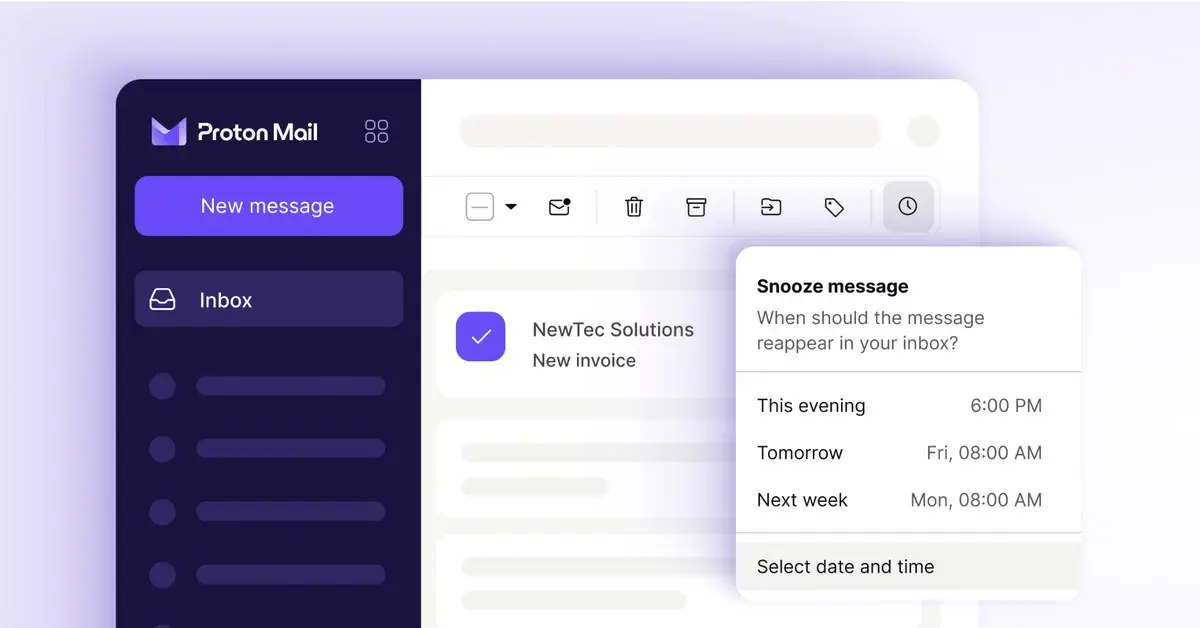- cross-posted to:
- hackernews@derp.foo

lemme guess, Electron

If it were, where is my Linux version

Genuine question, why does it matter? Why shouldn’t a project choose a production ready method of creating cross platform compatible code to avoid duplication of efforts and cost?

why does it matter?
because most people use more than one program at the same time? fire up that one along with, I dunno, Spotify and Discord and Slack, and suddenly your midrange laptop’s RAM is all but gone.

Same thing happens to me if I were to open each of those apps as chrome tabs.
The apps you listed provide a web version also. Adding choice to the customer experience is a good thing!

Adding choice to the customer
“you can have your memory eaten by our website in your browser, or by our website in a separate browser window wearing fake moustache and glasses” doesn’t seem to be much of a choice.
meanwhile if you launch their services using something other than a glorified Chrome tab, like spotify-qt or ripcord, they both end up consuming like one tenth of the resources the official clients do.

Why do you think everyone cares to optimize every single ounce of their ram memory. There is a lot more to UX than that.
I would rather an imperfect choice than none at all

That’s a bad analogy. A browser with 5 tabs is not like having 5 different browsers open.

User experience is not just about optimizing every little bit of your RAM consumption. They’re are plenty of other factors as well

Yes, and UX is bad in web applications. I‘m saying that as a web application developer.

Oh the fact it’s cross platform is not the issue, the issue is that Electron sucks. There are better alternatives available like Tauri, yet companies keep using Electron because that’s what their developers know and they’re afraid to try something new.

If I’m a company and want to bring something to production quickly, what should i choose:
-
A relatively new tool that has seen barely any production use and thus could have a bunch of unanticipated problems. Also nobody uses it so every new engineer you bring onto the project has to learn something entirely new before they can start really contributing. You also have no idea how long it will be supported by its developers into the long term future.
-
A battle hardened, production tested tool that has a huge community, has been around for a long time, and that a lot more developers already know how to use.
Sure #2 might be slower by a few fractions of a second, but if I’m in charge of the business i know which option I’m going to choose 100% of the time.

Look, I’m not a fan of early adoption either… but Tauri is not a one-person project that appeared yesterday. It’s been around for a while now and has important industry endorsements.
Also, every company should have an objective and rigorous set of technical requirements for the frameworks they use. If Tauri passes those there’s no reason not to use it.

As much as technologists like us wish we could prioritize efficiency and use the latest and flashiest tools all the time, that’s just not practical. When you say you want each company to have an objective set of technical requirements when choosing a toolset, you also have to have a set of practical requirements. What is the cost of friction of adding a new tech stack to the company?
Adding electron means just learning electron. Adding Tauri means learning Tauri and Rust.
It’s like the saying goes, “the best camera is the one you have with you”. It’s true with any business decision.

You have to upgrade sometime, you can’t stick to the “good old thing” forever.
That’s the kind of thinking that makes a business miss the boat by a decade or two until they’re no longer competitive and the cost of refurbishing has become so ridiculous that they’re forced to liquidate and sell whatever’s left of value (mostly customers and assets).
-

Because when I’m looking for where all my RAM went and realise I’m running 7 instances of Chrome browser for no reason. Meanwhile an actual instance of Chrome with ~20 tabs is still a single instance, but with multiple threads.

Real desktop app or just the web app in electron?

There’s the Github repo
No code in there but clearly states it is made with electron.
Good find!

Bound to be Electron. They wouldn’t spend the resources to maintain three different apps.

Exactly. It wouldn’t happen otherwise, not till more broadly accepted cross platform UI platforms exist that are as easy to onboard to.
Especially if you want to achieve the same level of detail and UI “prettyness”
I don’t believe many of us know that right now.

Which is… Also a real desktop app. This shallow take is getting incredibly old, and doesn’t even contribute to actual valuable discussion… If you don’t see the value in this being shipped, then why try and tear the value down for others?
I main C#, and even I would rather build cross platform full applications with electron than any of the other options available. I’m definitely choosing it over QT or gtk. Why? Because I can actually ship the project with all the necessary features, in good time, and bake in a great user experience.
That’s the difference here. Practical problems vs reality. Shipping the project & features vs not.
Yes, there are many successful applications not built with electron, ofc there are, that’s not my point. My point is that the productivity difference is such that it’s the difference between not building the thing vs building it and successful shipping it to users. You can argue and shit on the difference, but at the end of the day the above is what really matters.

Electron apps are not real apps. They’re web apps and in that case I can have even a better experience with a browser since I can use extensions, tabs, saving favorites and so on.
There are really few electron apps that deserve to be called “desktop app” and from what I’m seeing from the screenshots, this isn’t one of them.
If I really wanted to have a separate icon and window for this website I can tell my browser to install the pwa icon in the start menu. Wow, instant made desktop app!

What are you talking about…? Please re-read my comment above :/
An electron app is a natjve application that renders a browser based UI. You appear to be conflating the browser-based UI with the whole “native application” thing.
It comes with all the advantages a native application does, like having hardware access, working natively offline, working with the filesystem, interfacing with the OS and installed OS packages, being able to use other native binaries, being able to use more native networking capabilities…etc
Sure lots of electron applications that people make could just be a web app, I’m not arguing that.
I am, however, pointing out that you are grossly incorrect that electron (and all other technologies like it, we’re not really just talking about electron here) is 'just a web app". It’s a native application server and a web-based UI, which means I can write an application in C# with all of the .Net advantages, with a web UI, that runs natively on your device for example.
This lets me ship a product much faster than if I was going to build that UI in QT or GTK, with a significantly upgraded user experience that is consistent across all platforms.

ok, but in this case, it’s just a webview of mail.proton.me
it doesn’t have hardware access, it doesn’t work offline (technically, if it cached the files it can work offline, but can’t work offline-offline like thunderbird), it doesn’t work with the filesystem, it doesn’t interface with the OS and installed OS packages, it doesn’t use other native binaries, doesn’t use more native networking capabilities, etc…
from what i saw, the electron apps that are to be considered real apps and not just a lazy webview around the webapp are:
- bitwarden
- crickets

Like I said, I’m not arguing that many apps are built as electron apps when they’re just glorified web apps. Though I’m neutral on whether that’s a bad thing or not. I’m definitely against apps being built with electron that don’t really have UIs, defeating the entire point of electron and friends…
VSCode is another example you’re missing. And they have put a LOT of work into making as many features available in the web-version as possible, the feature parity isn’t an accident.
Or Obsidian.
Examples aside, you might be surprised by applications you may not think of as not using native features, that rely heavily on them, expecting to be executing in a Node environment and not a browser one. Especially on the networking and process side. Browsers are extremely restrictive.

Right i forgot about atom and vs code, the quality of those is excellent
Obsidian too

I guess they’ll do anything but get their app on F-Droid.

They will never open their apps. The whole business model of Proton is centered around user lock-in.
Who wants to bet they’ll discontinue the IMAP/SMTP desktop bridge after the desktop app has been out for a while? At which point you will not be able anymore to use an IMAP tool to extract your mail and go to another service.
If you store a lot of email on Proton take a backup now.

That’s my problem with these encrypted services: they lock you in. It makes me feel queasy, but at the same time, it ain’t google or yahoo or whatever.

I agree. I have privacy concerns, but ultimately, I think I care more about freedom and open source. I have very real concerns about the rise of authoritarianism in America, and I’m trying to balance that against a preference for more open services like mailbox.org and fastmail.

Proton mail, proton vpn are on Fdroid

Proton Mail is NOT on F-droid. Only Proton VPN.

Wierd, I am in F-Droid and searching for “Proton” shows both apps for me. Maybe its on another repo?

Maybe you enabled izzyondroid

Ha, I do have that repo enabled.
🤖 I’m a bot that provides automatic summaries for articles:
Click here to see the summary
Proton’s desktop app, on the other hand, will let you access emails offline without having to set up that bridge, which should be more convenient.
(The program will cache a large number of emails for offline use, Proton says.)
It’s important to note that you’ll still need internet access to both send and encrypt your emails on Proton.
But the offline feature will let you view and draft emails while traveling, during a power outage, or any other situation where you don’t have access to the internet.
Proton is also bringing encrypted auto-forwarding to paid users, both on its desktop and browser versions, though the encryption for forwards will only apply when the forwarded emails go to other Proton users.
The company says it has made improvements to Proton Calendar, too, including a fully searchable web version.
Saved 55% of original text.


